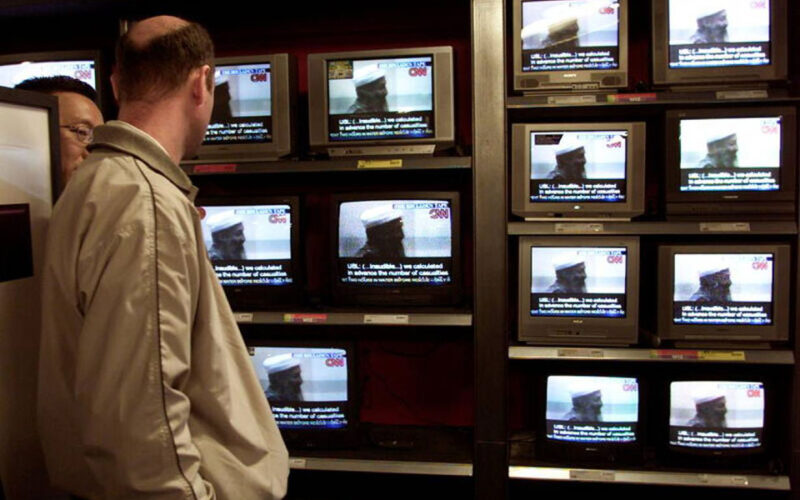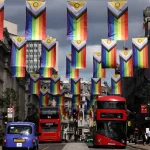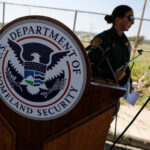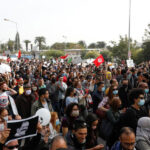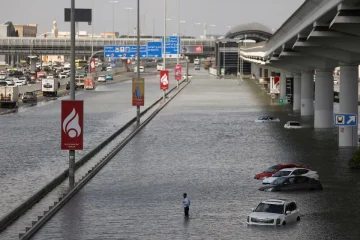RINA CHANDRAN
THE attacks on September 11, 2001, in the United States triggered new security laws domestically, and an extended campaign to root out terrorism worldwide which has had far-reaching consequences from the rise of surveillance technologies to refugee crises.
About 20 years of post-9/11 wars have cost the United States more than $8 trillion and caused about 900,000 deaths, according to estimates by the Costs of War project at Brown University, which said it did not factor in the “high societal costs”.
The September 11 attacks ushered in an era of increased surveillance, human rights violations and mass displacements globally, with the social and economic fallout likely to continue for decades, activists and academics have said.
Here are some of the biggest global impacts:
INCREASED SURVEILLANCE
Counter-terrorism became the justification for new security laws and monitoring by governments – ranging from mass data collection to the growing use of artificial intelligence tools.
Recent revelations that Pegasus spyware was used by nearly a dozen countries to track tens of thousands of people by accessing and exporting messages, photos and emails on their mobile phones without their knowledge has underlined the threat.
The 9/11 attacks were a “watershed moment”, and motivated the United States to export advanced technologies including surveillance equipment, said Steven Feldstein, a senior fellow at the Carnegie Endowment for International Peace in Washington.
An overhaul of global security in the aftermath involved “renewed investment in instruments of surveillance, data collection, tracking, and monitoring,” according to Feldstein.
“And just as governments were contemplating more ways to track user data and keep tabs on individuals, society’s reliance on the internet and electronic communication took off. That made it even more tempting – as well as inevitable – that governments would adopt new forms of surveillance,” he said.
“The legacy of 9/11 lives on: the advent of advanced surveillance and digital tracking measures has become firmly rooted in place around the world.”
MASS DISPLACEMENTS
At least 37 million people have fled their homes in the eight most violent wars the U.S. military has launched or participated in since 2001 – including Afghanistan, Iraq, Syria, Libya and Yemen, according to the Costs of War project.
The true figure is likely to be as high as 59 million, the researchers said, noting the “incalculable harm” done to individuals, families, towns, regions, as well as to entire countries physically, socially, emotionally, and economically.
In Afghanistan alone, there are about 5.5 million internally displaced people and some 570,000 have been newly displaced this year, the United Nations has said, as fighting escalated in the run up to the capture of Kabul by the Taliban on August 15.
Yet less than 1% of refugees are resettled each year, according to the United Nations, which said there were 20.7 million refugees of concern worldwide at the end of last year.
“There has been more xenophobia and an increase in anti-refugee sentiment globally since 9/11,” said Sameer Patil, a fellow at Gateway House, a think-tank based in Mumbai.
“Countries have also used the excuse of national security to tighten their borders and make it harder for citizens of some countries to get asylum,” he told the Thomson Reuters Foundation.
HUMAN RIGHTS ABUSES
Washington’s “war on terror” after the September 11 attacks has fuelled erosions in civil liberties and human rights worldwide, advocates have said, with growing concerns over the legality of mass surveillance, and privacy protections for the public.
Governments have used counter-terrorism as justification to tighten or pass laws to crackdown on dissent and round up those deemed as a threat to national security, disproportionately targeting activists and minorities, according to rights groups.
“9/11 threw the privacy-security balance badly out of whack,” said Feldstein. “Policymakers contended that fighting terrorism in whatever manner they deemed necessary took precedence over protecting citizens’ rights.
“Governments took advantage of America’s 9/11 anxiety and exploited the threat of terrorism to advance their own repressive agendas,” he added.

